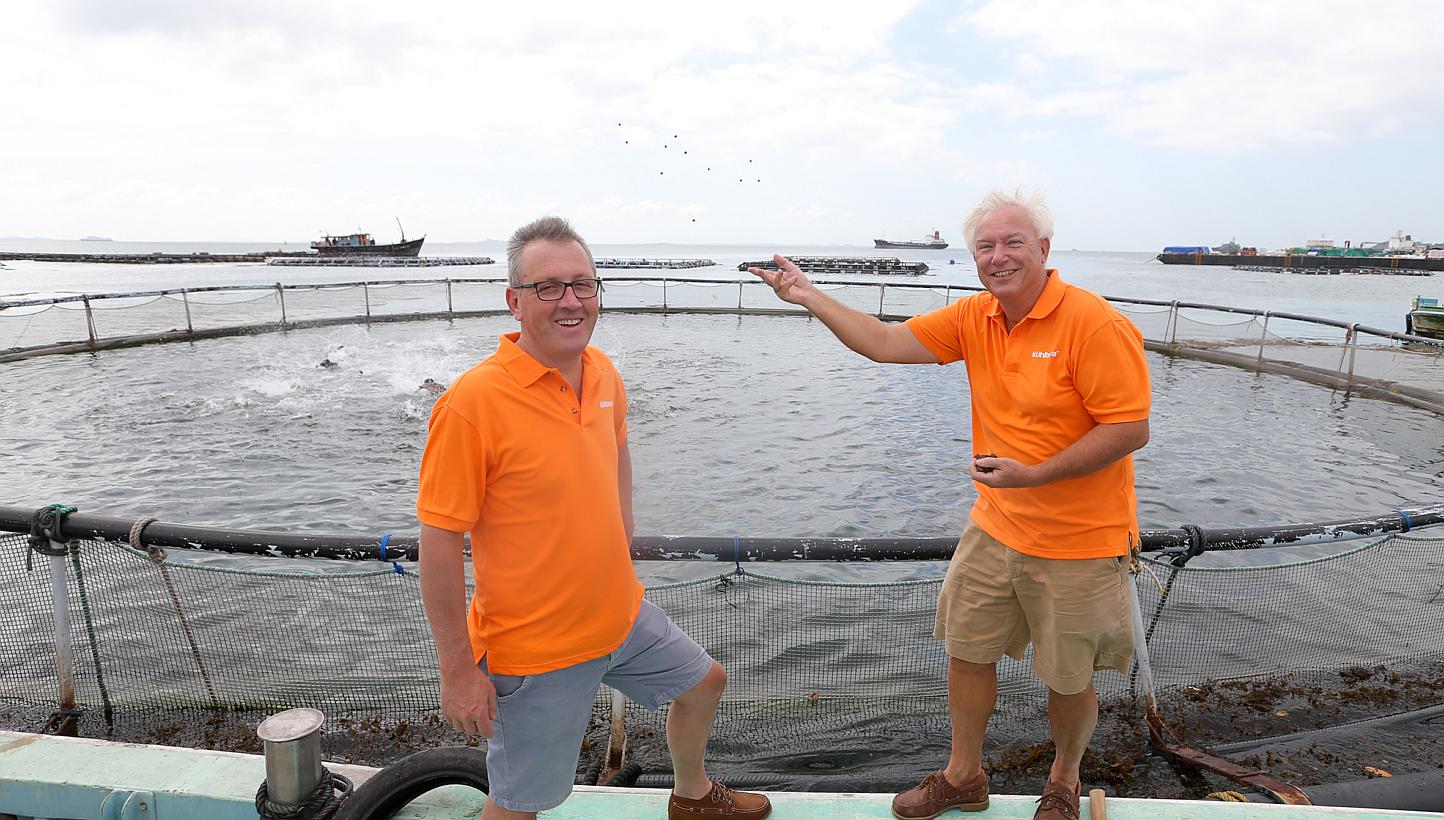Building a solid network of contacts - even finding a plumber - did not come easy for Mr Joep Staarman when he set up his fish farm in Singapore in 2008.
"We were starting in a new place and we were starting from zero," said the 57-year-old Dutchman, who is managing director of Barramundi Asia.
"It took us a long time before we found people who were reliable and experts at what they did."
Whenever the farm's harvest boat broke down, for instance, Mr Staarman had to attempt repairing it himself, as he did not know any boat brokers here.
"I would get all greasy - because the boat runs on diesel - and even then, it didn't always work afterwards," he recalled with a laugh in an interview with The Straits Times last week.
Today, however, Mr Staarman, who previously worked at Marine Harvest, one of the world's largest seafood companies, is well acquainted with people in the local aquaculture industry, from boat repair brokers to boatmen.
Barramundi Asia produces 500 tonnes of barramundi fish a year at its 7.5ha European Union-certified farm off Pulau Semakau, which has a maximum capacity of 3,000 tonnes of fish.
The total volume of fish is growing at a compound rate of 11 per cent every month.
The firm exports about 20 tonnes of fish to hotels and restaurants in Australia each month.
It also supplies fish to hotels here, such as the Swissotel hotels, as well as restaurants like Wild Rocket and The Naked Finn.
Being in Singapore was what helped propel and grow the business, said Mr Staarman, who visits the farm four or five times a week.
"Having the same temperature all year round means that the fish always grows," he said, noting that barramundi fish are known to thrive in water temperatures between 28 deg C and 30 deg C.
The country's open southern waters - which comes with "oxygen-rich waters, strong currents and a pristine ecosystem" - are ideal for farming fish as well.
Board member Hans den Bieman, 66, said that Singapore's reliability and efficiency as a logistics and business hub also made it "a very logical choice" for the siting of the farm.
The stringent food safety requirements set by the Agri-Food and Veterinary Authority (AVA) also benefit the firm, as consumers know that the fish produced here are extremely safe to eat, he said.
"It's much more expedient to set up business here compared with some countries in Europe.
"We get support from the authorities, and everything is readily available, be it infrastructure, people or the know-how," said Mr den Bieman.
With demand for the fish ballooning over the past few years, plans for expansion are also on the horizon.
Mr Staarman said that a second 12ha site is slated to be up and running in the next two years to cater to growing demand, bringing the farm's overall maximum production capacity to 6,000 tonnes of fish a year.
He said that Singapore will likely remain the company's logistical "nucleus" as it looks to expanding operations in the region over the next few years.
Barramundi Asia, which employs more than 20 workers, also launched an online platform last week to allow customers to buy fresh barramundi fillets directly through a "farm-to-fork" model.
The fish are being sold under a new brand Kuhlbarra on www.kuhlbarra.com
They are filleted and vacuum- packed in sub-zero temperatures before being delivered to customers in insulated boxes filled with ice.
This process keeps the fish fresh and more hygienic, noted Mr Andrew Kwan, 49, group managing director of Commonwealth Capital, which co-owns the firm.
"Consumers today are more discerning about what they eat," he said. "They also have a heightened sense of being environmentally friendly and want products that are sustainable."
Barramundi Asia's fish, for instance, are fed high-quality fishmeal - comprising ingredients such as salmon oil - from a sustainability-certified manufacturer.
The ocean enclosures on the farm, in areas with strong currents, are certified for "good aquaculture practice for fish farming" by the AVA. This means fish waste is dispersed to be naturally recycled in the ecosystem, while no excess feed builds up.
"If we do this well, we can also help build up local food production," said Mr Kwan.
"There is a huge potential for the fish farming industry here, and we look forward to putting more locally grown fish on dining tables in Singapore."
tsjwoo@sph.com.sg


